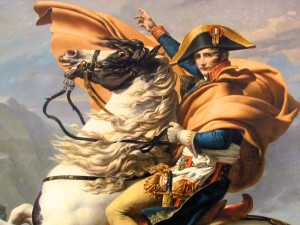So, I recently met a gentleman by the name of Doug Batson who coined the term “Napoleonic Know-how” to describe the administrative functions associated with the Napoleonic Code – specifically, the management of land parcels – what the experts call the “cadastre”. Doug is an expert in toponyms. In particular, he is an expert in toponyms from Turkic tongues. But, he is also an expert in cadastral data, land tenure issues, and the establishment of systems for the management of land parcel data.
What I love about the term Napoleonic Know-how is that it shines a light on the administrative capabilities that underpin democracy and capitalism, but which none of the Washington Commentariat or policymakers are even conscious of. They scream for the US to establish democracy and capitalism around the world, but they wouldn’t be able to recognize the administrative functions required to underpin their success. No, Napoleon was not a democrat or a capitalist. Napoleon used the cadastre to establish an iron grip on the European continent through his Napoleonic Code and the land management system it engendered. And he built upon this system unique addresses (for the parcels) which helped locate each person to a specific plot of land on their identification card. It was an mechanism of oppression and order.
But, systems built during one time for a specific purpose often take on different social purposes over time. And, the way it was manifested in English Common Law, and under George Washington and the Founding Fathers had a different effect. For some reason, policymakers in the US have completely forgotten that capitalism only exists because of legally codified property rights. And, law enforcement and contracts are only workable when each individual is uniquely identified and tied to residences and places of employment via addresses. And, representative democracy only works when it is periodically reapportioned based on the results of the census.
What I love about it in particular is that Napoleon, widely considered to be one of history’s greatest battle commanders saw his greatest accomplishment as his creation of the Napoleonic code. But, yet, our national security community do not understand the role of such administrative mechanisms in establishing stability and underpinning open society. Instead, are organized to kill our way to stability. Maybe our battle commanders could learn from Napoleon, and work to establish a well managed cadastre, address systems, unique IDs, and a systematic census in the conflict zones to which we so readily send out troops. Perhaps if we underwrote this investment in countries of national security concern to us, we could help enable the development of open administrative capacities that make stability more feasible.
